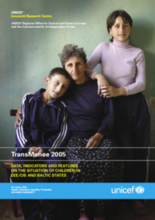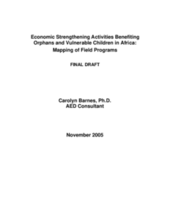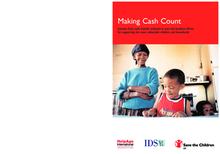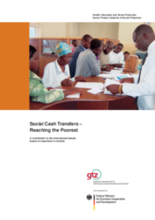Displaying 14031 - 14040 of 14551
The TransMONEE statistical tables display indicators of human welfare in the 27 countries of CEE/CIS and Baltic States. Population, natality, maternal and child mortality, health, education, child protection and economics serve as the key indicators.
This report examines the social and economic trends and challenges affecting children in CEE/CIS and the Baltic States. Social orphanhood, maternal and infant mortality rates, deaths from accidents and injuries, infectious disease, and low public health expenditures are addressed.
This paper examines childcare policy in Mozambique. It finds that vulnerability increases when orphans are placed in resource-poor kinship care arrangements.
A guideline to establish and promote good practice in a variety of childcare settings through the application of quality indicators. The indicators address professional practice, quality of care, caregivers, resources and administration.
This document is a guideline to facilitate good policy and practice within institutional care settings for children in Timor. It addresses regulations, registration, standards of care, placement and monitoring.
This paper identifies programs in sub-Saharan Africa focused on economic strengthening interventions, and analyzes their approaches and impact on orphans and vulnerable children. Interventions focused on savings and lending groups, micro-leasing, market linkages and household gardening appear to be particularly effective.
This paper is a comprehensive examination of cash transfers in Africa and their impact on children. Case studies from Ethiopia, Zambia, Mozambique and Lesotho are discussed.
This paper explores the role and process of social cash transfers to reduce poverty and provide social protection. It examines a pilot cash transfer program in Zambia.
This paper examines the role, process and impact of cash transfer interventions in Ethiopia using several case studies. Challenges and recommendations for future cash interventions are discussed in-depth.
This paper examines the short-term impact of conditional cash transfer programs in comparison to traditional social assistance programs. Programs in Colombia, Honduras, Jamaica, Mexico, Nicaragua and Turkey are highlighted.








